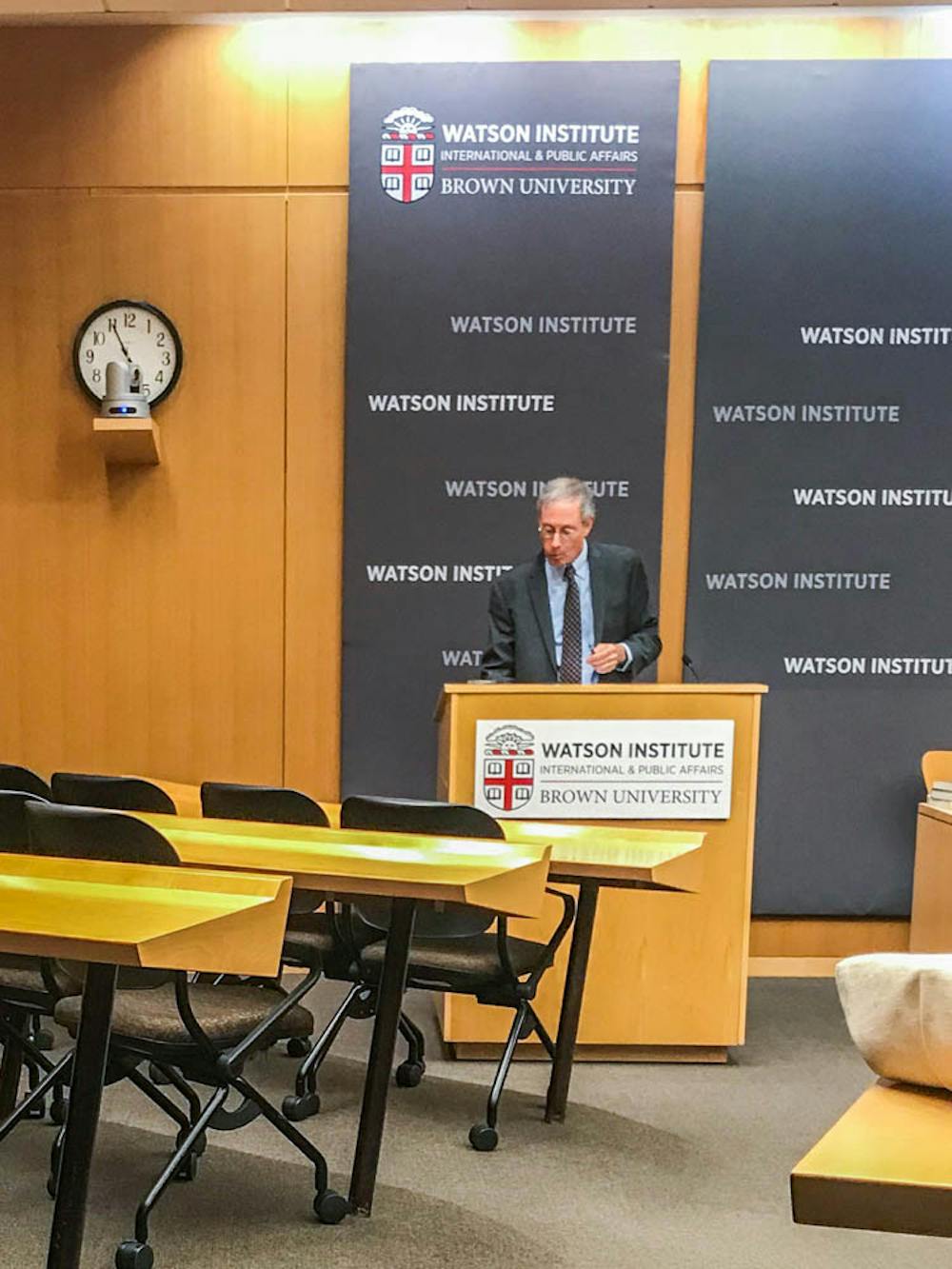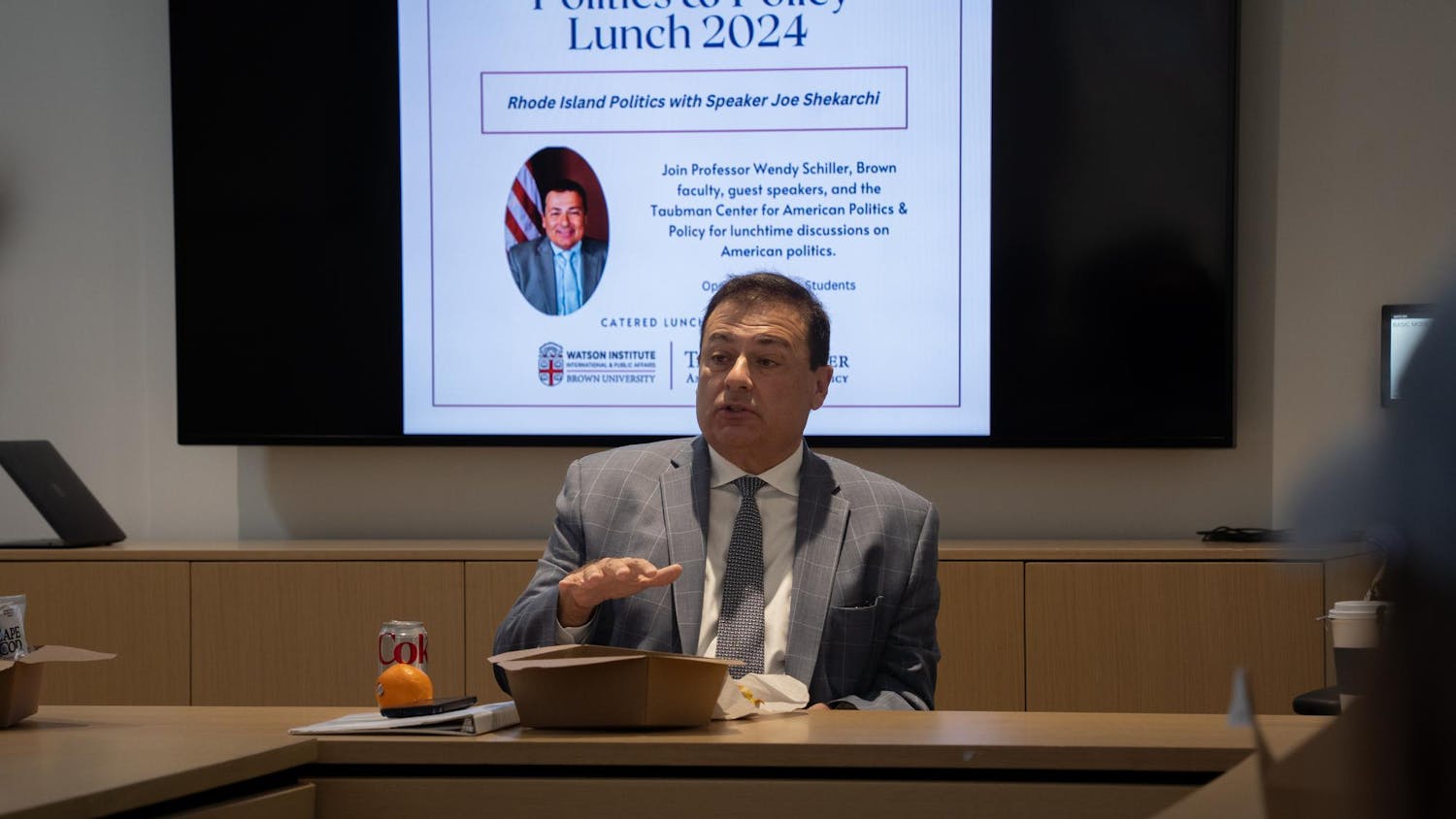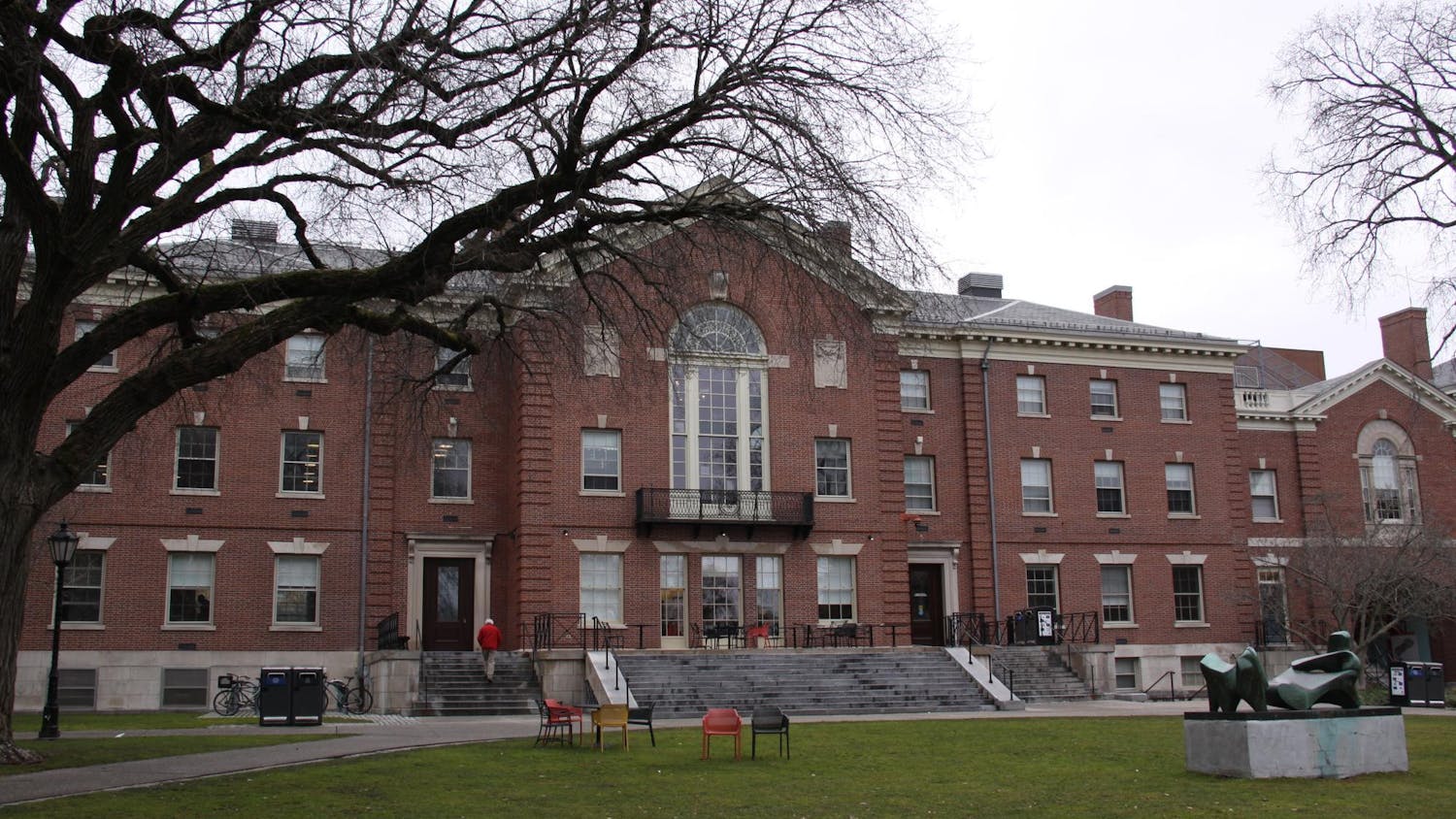Derek Penslar, visiting professor of history from Harvard, spoke about the dichotomy of Israeli independence and dependency at the Watson Institute for International and Public Affairs Wednesday. His talk detailed how Israel became a state through the support of various people, documents and nations.
The lecture was a part of the Israel-Palestine Distinguished Lecture Series, which is organized by Professor of European History and German Studies Omer Bartov.
Penslar’s discussion argued that the notion of dependency was central to Israel’s founding. Since the the late 1800s, and even before that, Penslar said that Jewish individuals often depended on the protection of kings. Even with the initial notions of a Zionist nation in Theodor Herzl’s “The Jewish State of 1896,” Penslar said that Herzl’s own definition of the state was “vague, unsure, flexible about the form of the polity.”
In a debate in 1898, Herzl said, “Well, what is a state? A big colony. What’s a colony? A small state.” Penslar argued this tone continued the “historic Jewish dependence on the state.”
With the Balfour Declaration of 1917, Penslar said that the Zionist Movement was still unsure of its intentions. Many Jewish people were incredibly grateful to Great Britain for its support of a Jewish homeland in Palestine, Penslar said. But many anti-imperialists remained skeptical, he added.
“This complex and ambiguous relationship between gratitude and dependence on one hand, and pride and independence on the other, is even more illustrated by the practices of likening the Balfour Declaration to the Magna Carta,” Penslar said. Proponents valorized the magnitude of both documents, but according to Penslar, the Magna Carta was a “concession of aristocratic privilege.”
In 1948, Israel became its own state, but still needed the aid of others to survive, Penslar said. Unlike other post-colonial nations, “the Zionists had no patron state.” Even though the United States recognized Israel in 1948, it did not arm Israel the way China armed the Viet Minh, he added. Instead, the Israelis were armed by Zionists in other countries.
The Declaration of the Establishment of the State of Israel itself was unique to other post-colonial declarations of independence, Penslar said. Unlike the U.S. Declaration of Independence, which specifically cuts ties with Great Britain, the Israeli document is “about the historic and collective rights of the Jewish people.”
“It is an assertion of self-constitution, not separation,” Penslar said.
Over time, Israel has gained the appearance of independence, but is still strongly tied to the United States and other countries, Penslar said. For example, the nation became a Major non-NATO ally.
Sarah Campbell Tucker ’19 was most interested in the description of Israel as both independent and dependent because she said Israel is thought “to have a lot of power in the world.” As a student in Bartov’s HIST 1969B: “Israel-Palestine: Lands and Peoples II” class this semester, Tucker said Penslar’s analysis of Israel’s Declaration of Establishment was an “interesting marker” of how Israel presents itself in the world.
Even in a difficult and polarizing political climate, Penslar said he feels that the people who take his classes and listen to his talks, as well as his colleagues, tend to be respectful and want to learn.
“I think there have been a lot of issues lately about people being upset when we bring … people from the extreme sides of issues, but I think that it’s still important to hear those voices. This I think is even more important because, especially with Israel-Palestine, a lot of the community is very polarized about it, and this (talk) brings to light that there is a middle ground,” said Johanna Garfinkel ’19.





